A university student waits out the upheaval of the pandemic at home with patience, clean water
“With the restrictions removed, the first thing I would like to do, personally, is I would like to go back to school and complete my studies,” said Kamins Muteshi.
Kamins is a 24-year-old university student currently living in Bukhunyilu, Western Kenya, where he relies on Solomon Wangula Spring for water. Like so many others his age across the country, Kamins has been waiting out Kenya’s national school closures at home with his family.
A senior in his bachelor’s degree program, Kamins expected to graduate this year – until the pandemic arrived and shut down all Kenyan schools in March. Despite his easy smile and calm demeanor, the stress and upheaval of 2020 are no strangers to this aspiring graduate.
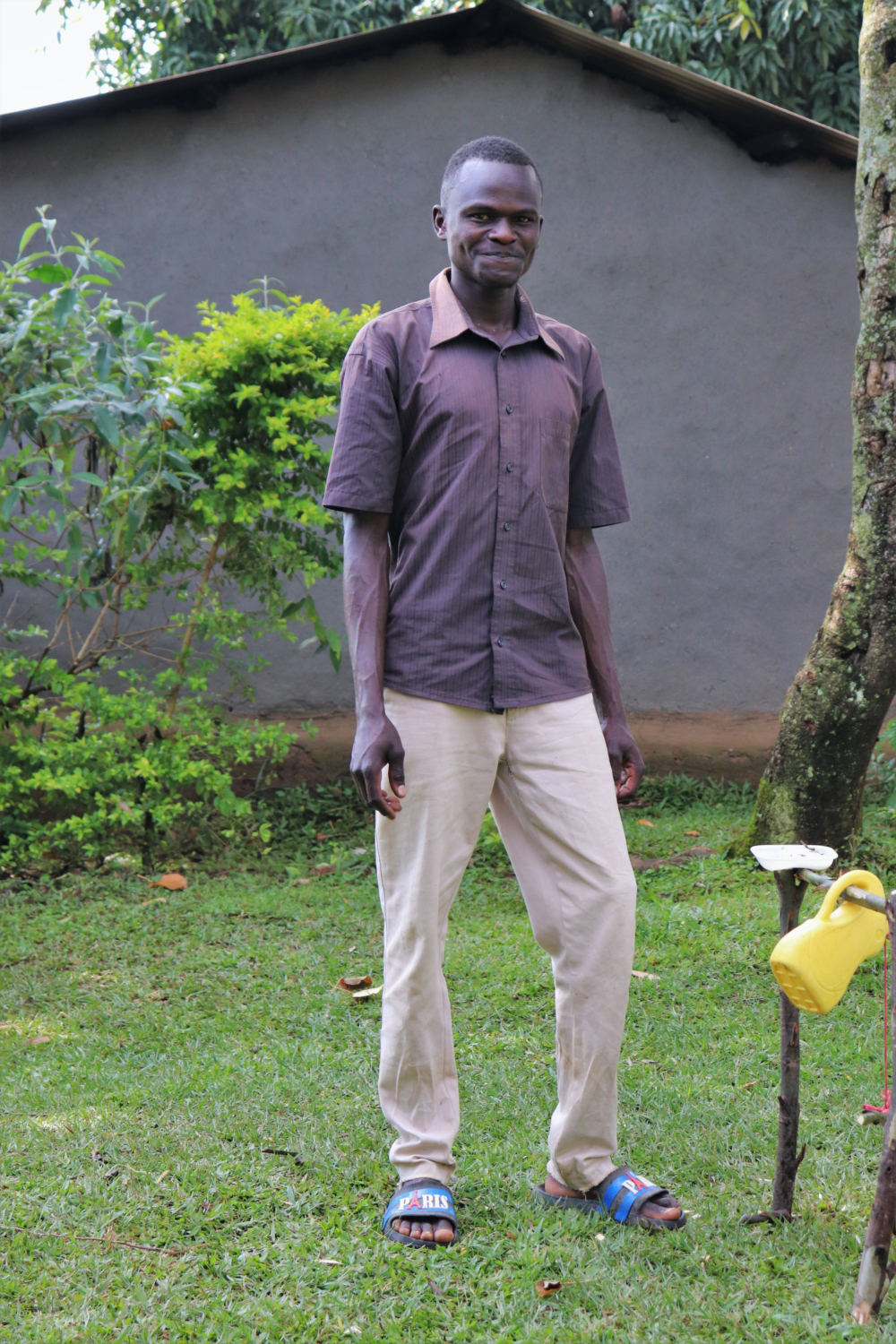
Kamins Muteshi
Just as most governments worldwide, the Kenyan government continues to set and adjust restrictions both nationally and regionally to help control the spread of the virus. While the government recently re-admitted certain levels of students to return to school, Kamins’ class was not one of them. By rule, he will have to repeat his entire academic term, including his attachment, or apprenticeship, come January before he is allowed to graduate.
Our team recently visited Bukhunyilu to conduct a COVID-19 prevention training and monitor their spring. Shortly after, we returned to check in on the community, offer a COVID-19 refresher training, and ask how the pandemic affects their lives. During this most recent visit, Kamins shared his story of how the coronavirus is impacting his life, his family, and his community.
Field Officer Jacklyne Chelagat met Kamins outside his family’s home to conduct the interview. Both Jacky and Kamins observed physical distancing and other precautions throughout the visit to ensure their health and safety. The following is Kamins’ story, in his own words.
What is one thing that has changed in your community since the completion of the water project?
“We are now accessing clean and safe water, and our health is good. We take very minimal time to fetch water, and this has increased time for other development activities to be conducted efficiently.”
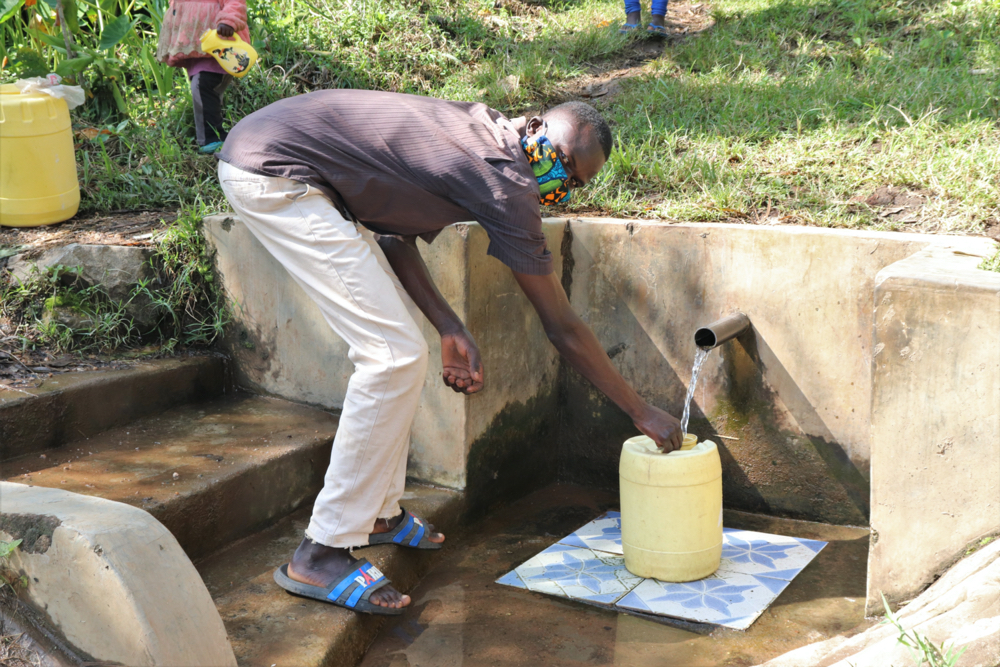
Kamins fetching water from Solomon Wangula Spring
How has having a clean water point helped you through the pandemic so far?
“It has helped us to drink, feed animals, wash our hands frequently, and promote high standards of hygiene and sanitation.”

Kamins washing his hands with soap and clean water from the spring using a homemade tippy tap handwashing station
Since the outbreak of COVID-19 in Kenya, has fetching water changed for you because of restrictions, new rules, or your concerns about the virus?
“Fetching water in our spring has really changed as we no longer congest at the spring. Every member is advised to go in shifts and observe social distance while putting on masks.”

Community members observe physical distancing and wear masks while fetching water at Solomon Wangula Spring
How has COVID-19 impacted your family?
“I was to finish my bachelor’s degree early this year, but due to the closure of learning institutions, it has created a setback in my studies which I was not prepared for. Being idle at home is a great challenge, especially without enough resources, to meet your personal needs.”
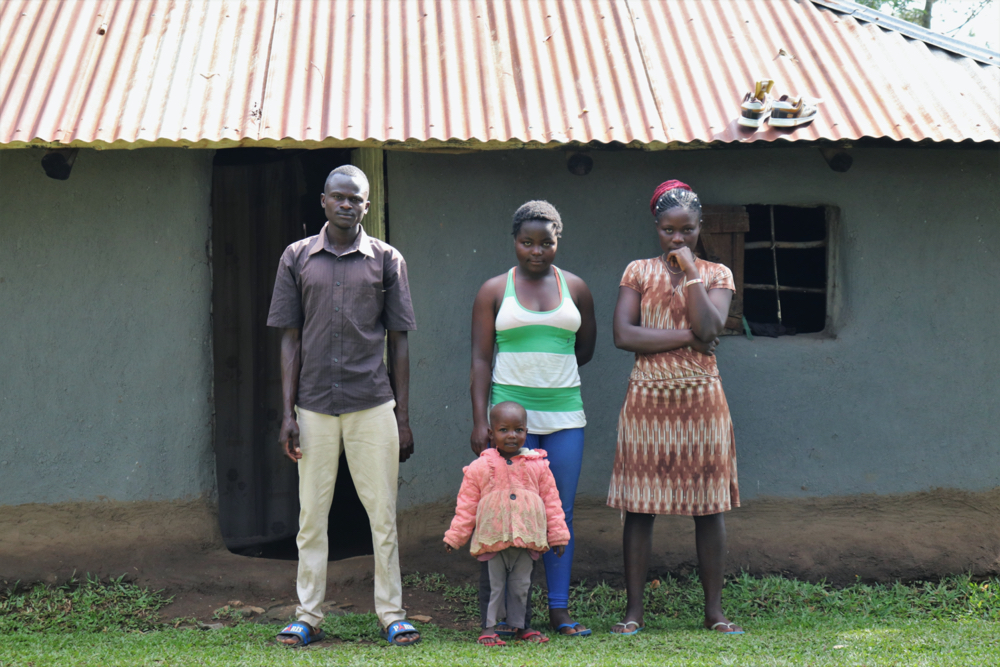
Kamins with family outside their home
What other challenges are you experiencing due to the COVID-19 pandemic?
“I am worried as the little funds set aside for my school fees have already been used to cater to our daily needs. It’s both creating economic and emotional challenges on me.”
What hygiene and sanitation steps have you and your community took to stop the spread of the virus?
“Every community member has strived to wash their hands frequently and wear masks whenever they are in gatherings or going to fetch water.”
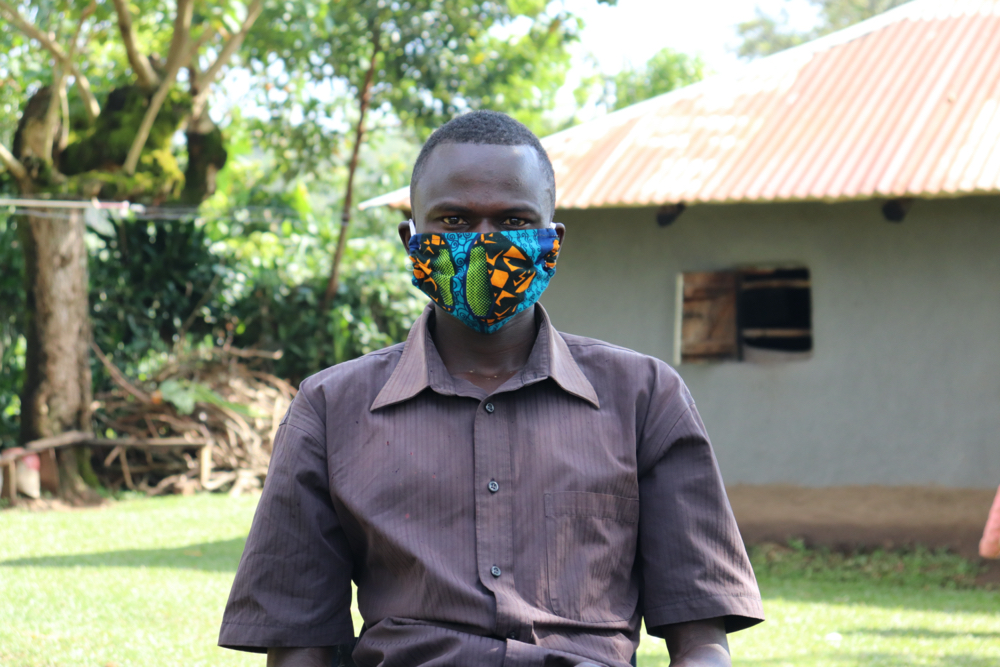
Kamins weatring his mask
What restriction were you most excited to see lifted already?
“I am a worshipper in church, so opening churches was a wise thought. Being a student, I am happy to go back to school and finish my studies despite not having enough school fees.”
What restriction are you still looking forward to being lifted?
“Currently, most of the restrictions are lifted, and we are happy though we are advised to continue observing the regulations that are in place.”
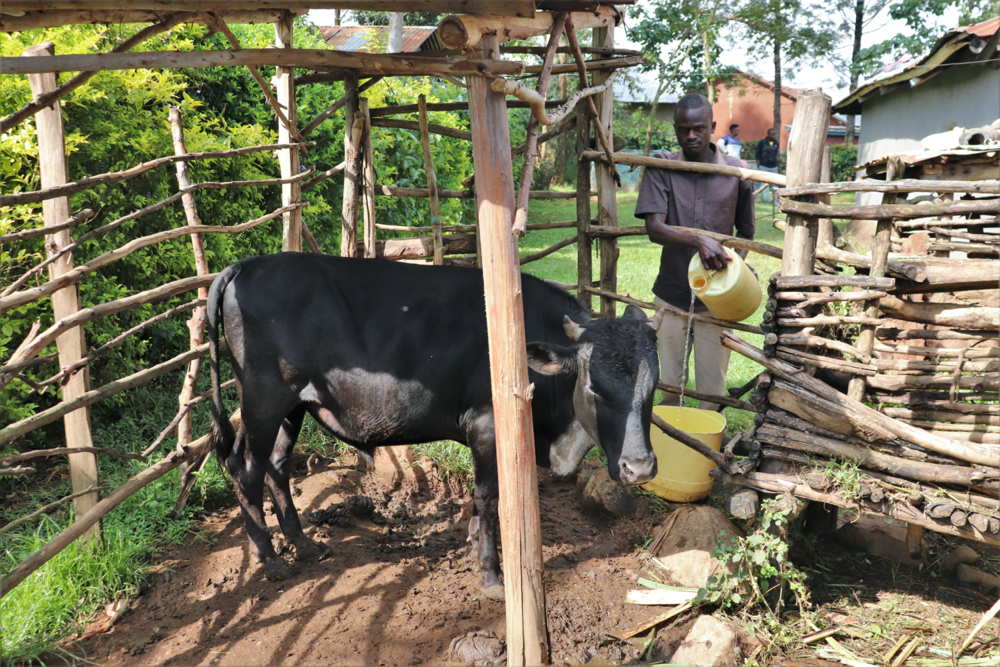
Watering the family’s cow with water from the spring
When asked where he receives information about COVID-19, Kamins listed the radio, television, and our team’s sensitization training.
What has been the most valuable part of the COVID-19 sensitization training you received from our team?
“I was excited to acquire information on how to make tippy taps as it eases the handwashing process. Mask making was innovative enough that it gave every member access to it. And finally, the entire sensitization was important as it created enough awareness of COVID-19.”
This post is part of a series by The Water Project meant to highlight the perspectives and experiences of the people we serve and how the COVID-19 pandemic is impacting them. We invite you to read more of their stories here.
Home More Like ThisTweet